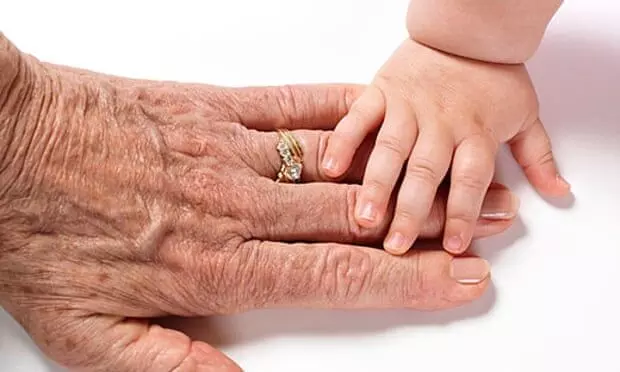
Researchers shed light on reasons behind frailness in people after 70
text_fieldsA group of Researchers in Cambridge discovered a groundbreaking theory related to ageing, which explains the reason for people becoming frail as they reach 70s. This has increased the possibilities of finding new therapies that can help in preventing the decline and diseases of old age.
Researchers discovered that there exists a process that brings a "catastrophic" change in blood make-up in older people that reduces the efficacy of the infection fighting capabilities of white blood cells, thereby increasing chances of blood cancers and anaemia.
The reason for rapid decline of the bodies when people reach their 70s, despite ageing healthily prior to that, can be linked to similar changes that occur in all other organs of the body from skin to the brain.
Dr Peter Campbell, a senior author on the study and head of the cancer, ageing and somatic mutation programme at the Sanger Institute in Cambridge said, "What's exciting about this work is there may be a common set of processes at work," adding that "Ultimately the goal would be slowing or intervening in the ageing process, but at the very least we see an option to use this to measure biological age."
The process of ageing is a complex one. Scientists have suspected that it is the slow buildup of mutations in the cell that results in the gradual degradation of the body's ability to function normally. This research that has come up suggest that such thinking is incomplete, and instead blames 'selfish' cells that come into dominance when aged.
Campbell and his colleagues along with scientists at the Wellcome-MRC Cambridge Stem Cell Institute have studied blood cells from newborns to those in their 70s and 80s. They found that the bone marrow of adults under the age of 65 contains a wide variety of red and white blood cells that produce 20,000 to 200,000 different types of stem cells.
For those over 65, the picture was completely different. Half of their blood cells are made up of 10 or 20 different stem cells, which dramatically reduce the diversity of an individual's blood cells, with consequences for their health.
The researchers while writing in the Journal Nature explained that most of the changes incurred when stem cells mutate while making blood are harmless.
Writing in the journal Nature, the researchers explain that while stem cells involved in making blood gather mutations over time, most of these changes are harmless. The issue arises when rare "driver" mutations make stem cells grow faster, often producing substandard blood cells as a trade-off. As an individual age between the ages of 30 and 40, there is little difference in the quality of stem cell growth, but at 70 and above, these rapidly growing cells dominate blood cell production.
"The exponential growth explains why there is such a sudden change in frailty after the age of 70, why ageing hits at that sort of age," said Campbell. Rapidly growing blood stem cells are associated with leukemia and anemia, as well as reduced immunity to infections and medical treatments such as chemotherapy, according to the Guardian.
"What we know about other organ systems is that many of the same observations apply," Campbell added. Researchers are now looking at the same process in the skin to find out why aging leads to wrinkles and slow healing of a wound.
An assistant professor at the Wellcome-MRC Cambridge Stem Cell Institute and joint senior researcher on the study Dr Elisa Laurenti said that stem cells with cancer-causing mutations could potentially be produced by chronic inflammation, smoking, infection and chemotherapy could all produce.
"We predict that these factors also bring forward the decline in blood stem cell diversity associated with ageing," she said. "It is possible that there are factors that might slow this process down, too. We now have the exciting task of figuring out how these newly discovered mutations affect blood function in the elderly, so we can learn how to minimise disease risk and promote healthy ageing."























